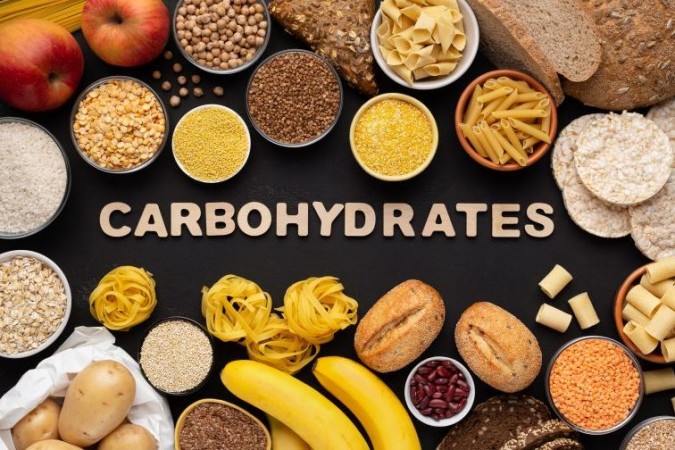
Carbohydrates are an essential macronutrient that provides the body with energy, supports brain function, and aids in digestion. However, not all carbs are created equal. Opting for healthy carbohydrate sources can contribute to a balanced diet and overall well-being. Carbohydrates have come under the lens for their reputation to cause weight gain. Many people claim that they have cut out carbs completely from their diet in a bid to shed the excess kilos. But not all carbohydrates are bad and in fact, many of them are essential for proper functioning of the body. Our body needs carbohydrates for energy, protection against diseases and to manage weight. In this article, we will explore seven healthy carb sources that are nutrient-dense and can be easily incorporated into your daily meals.
Quinoa:
Quinoa is a versatile, gluten-free grain that packs a powerful nutritional punch. It is rich in complex carbohydrates, fiber, and complete protein, making it an excellent choice for vegetarians and vegans. Additionally, quinoa is a good source of essential vitamins and minerals such as iron, magnesium, and phosphorus. Quinoa is a nutritious seed that has become incredibly popular among health-conscious consumers. It’s classified as a pseudocereal, which is a seed that’s prepared and eaten like a grain. Cooked quinoa contains 70% carbs, making it a high-carb food. However, it’s also a good source of protein and fiber (1Trusted Source). Quinoa is rich in many minerals and plant compounds and has been linked to a variety of health benefits, including improved blood sugar management and heart health
Sweet Potatoes:
Sweet potatoes are a delicious and nutritious carbohydrate source. They are high in fiber, which aids in digestion and helps stabilize blood sugar levels. These vibrant tubers are also loaded with vitamins A and C, which support immune function and promote healthy skin. Sweet potatoes are a delicious, nutritious tuber or root vegetable. One-half cup (100 grams) of mashed, cooked sweet potatoes with their skin on contains about 20.7 grams of carbs, which consists of starch, sugar, and fiber (25Trusted Source). Sweet potatoes are also a rich source of vitamin A, vitamin C, and potassium
Lentils:
Lentils are a type of legume that offers a substantial amount of carbohydrates, protein, and fiber. They are beneficial for heart health due to their ability to lower cholesterol levels. Lentils come in various colors, including red, green, and black, making them a versatile addition to soups, salads, and stews.
Brown Rice:
Compared to refined white rice, brown rice retains its bran and germ layers, providing more fiber, vitamins, and minerals. This whole grain is an excellent source of energy and helps maintain steady blood sugar levels. Brown rice can be served as a side dish or used as the base for nourishing grain bowls. Brown rice is a common side dish and a healthful alternative to white rice. One cup of cooked brown rice has 45.8 g of carbohydratesTrusted Source. This grain is also rich in antioxidants
Chickpeas:
Chickpeas, also known as garbanzo beans, are another nutritious carbohydrate source. They are abundant in fiber, which promotes digestive health, and they offer a good amount of plant-based protein. Chickpeas can be used in a variety of dishes, from hummus and salads to curries and roasted snacks. Every serving of chickpeas (30 g) contains 11.85 g of carbohydrates. Chickpeas are a source of many kinds of carbohydrates, including glucose, which is an instant source of energy, and oligosaccharides which are formed from two sugars linked to each other. Raffinose is the name of the oligosaccharide found in chickpeas and is fermented by the bacteria in our large intestine, thus helping them survive and flourish. You may want to try out this sweet potato and chickpea cutlet for a boost of healthy carbs!
Oats:
Oats are a classic breakfast staple that provides a sustained release of energy throughout the day. They contain beta-glucans, a type of soluble fiber that supports heart health by reducing cholesterol levels. Oats are also rich in vitamins and minerals, including manganese, phosphorus, and magnesium. The nutritional composition of oats is well-balanced. It is a good source of carbohydrates and quality protein, with a varied amino acid balance. Oat starch constitutes about 60 % of the oat grain. A high fraction of starch in oats is slowly digestible starch (SDS) and resistant starch (RS). SDS ensures the balance of blood glucose and prevents undesired spikes in sugar levels. It also enhances the nutritional quality of the food. Resistant starch from oats, on the other hand, is beneficial for the good bacteria in our gut. It also fulfills the function of imparting a better appearance, texture, and mouthfeel to foods.
Fruits:
Fruits are nature's candy and are an excellent source of healthy carbohydrates. They contain natural sugars, fiber, vitamins, and antioxidants. Berries, apples, oranges, bananas, and kiwis are just a few examples of fruits that can be easily incorporated into your diet. Remember to enjoy whole fruits rather than fruit juices to maximize their nutritional benefits.
Incorporating these seven healthy carbohydrate sources into your diet can help you maintain stable energy levels, support digestive health, and ensure you're getting essential nutrients. Remember to balance your carbohydrate intake with protein, healthy fats, and a variety of colorful vegetables for a well-rounded and nutritious diet. As always, it's essential to consult with a healthcare professional or registered dietitian to create a personalized and sustainable eating plan that suits your individual needs and goals.
Whip Up Nutritious Delights: Easy Lunches with Only Five Ingredients
Delicious Lunch Salad Ideas for Work or School: Elevate Your Lunchtime with Fresh and Tasty Salads!
Nourishing from Within: Why and How to Maintain a Balanced Diet for Radiant Skin